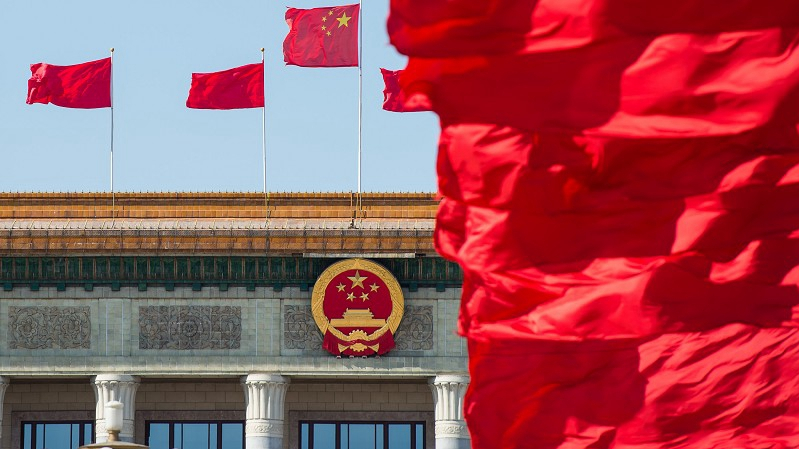02:17

"Targeted poverty alleviation, preventing financial risks and pollution control" – these are the "three tough battles" China is facing in its next stage of development to become a "moderately prosperous society in all respects" by 2020.
The notion was put forward at the 19th National Congress of the Communist Party of China (CPC) in 2017 by President Xi Jinping, also general secretary of the CPC Central Committee and chairman of the Central Military Commission.
Read More:
A simple guide to 4th plenary session of 19th CPC Central Committee
As the Communist Party's top decision-making body, the CPC National Congress maps out China's new development philosophy for the coming years.
Then the State Council – the executive body of the central government – provided detailed plans on fighting the "three tough battles."
After the plans were approved by the legislature, the National People's Congress, ministries and commissions began to put forward concrete measures according to the plans. Those measures will be implemented by governments at all levels to make sure the top objectives of the Chinese leadership can be fully realized.
Against poverty
If we take a look at some results of China's efforts in fighting the "three tough battles," the country lifted more than 700 million people out of absolute poverty by 2019, with poverty rate dropping from 10.2 percent to less than 2 percent.
By the end of 2019, about 95 percent of the poverty-stricken people in China will be raised out of absolute poverty.
Read More:
My story: Industries and internet inject vitality to China's poverty-stricken areas
My story: One-stop govt service platform makes business registration easier
The communique released today after the 19th Central Committee of the CPC concluded its fourth plenary session in Beijing on Thursday said that China must bear in mind the fundamental principle that the Party is built for the public and that it exercises state power for the people.
That is, China must win the battle against poverty, said the communique, and build a long-term mechanism that can solve relative poverty.
Since taking office in 2012, President Xi has made eradication of absolute poverty the threshold requirement for establishing a "moderately prosperous society" in all respects by 2020.
At the Fifth Plenary Session of the 18th CPC Central Committee held in October 2015, the CPC further specified the task of eliminating rural poverty and rehabilitating all impoverished counties by 2020.
"We must ensure that by the year 2020, all rural residents living below the current poverty line have been lifted out of poverty, and poverty is eliminated from all poor counties and regions," Xi said in a report delivered to the 19th National Congress of the CPC in 2017.
Against financial risks
In terms of preventing financial risks, in the first 10 months of 2017, China's banking regulatory authorities imposed penalties in over 2,600 cases of irregularities, covering state-owned banks and city commercial banks.
By the end of October 2018, outstanding local government debts stood at 18.4 trillion yuan – or about 2.6 trillion U.S. dollars. That was below the upper limit of 21 trillion yuan.
Read more:
China's Two Sessions 2019: Four critical issues in a 'key year'
PBOC deputy governor says financial risks are moderating
Against pollution
Pollution control is the third key battle, with the goal of significantly reducing major pollutant emissions.
As the Chinese economy evolves from high-speed growth to high-quality development, President Xi has called for efforts to maintain strategic resolve in enhancing the building of an ecological civilization, warning against the tendency of sacrificing the environment for economic growth.
The country spent around 255.5 billion yuan (38.1 billion U.S. dollars) in fighting against pollution in 2018, an increase of 13.9 percent year on year, targeting three major areas of air, water and soil quality as well as promoting sustainability in everyday life and work.
And the country has passed its toughest environmental protection law ever to eliminate outdated types of capacity while adjusting its industrial and energy structures.
Over 330 cities in China saw improvements in air quality last year.
This year will see sulfur dioxide and nitrogen oxide emissions cut by 3 percent, along with a continuous decline in PM2.5 density in key areas.
Read More:
China in 2018: Pushing forward ecological civilization in a new era
(CGTN's You Yang, Ma Yunpu also contributed to the story.)